Fritextsökning
Artiklar per år
Innehållstyper
-

Höstens mest lästa krönikor
Här nedan läser du de mest lästa krönikorna i Life Science Sweden och systertidningen Medtech Magazine från hösten och vintern.
-
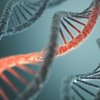
Första genterapin mot vanlig cancerform godkänd i USA
Den första genterapin mot urinblåsecancer har godkänts av den amerikanska läkemedelsmyndigheten FDA.
-

”Alla skriker efter talang”
Att locka till sig begåvningarna är en av life science-branschens stora framtidsutmaningar. Det var en av slutsatserna i det panelsamtal som avslutade konferensen New Horizons in Biologics & Bioprocessing på torsdagen.
-
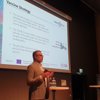
Svenskt DNA-vaccin i fokus — "Villigheten att dela data och kompetens har varit en nyckel"
Utvecklingen av ett svenskt DNA-baserat covidvaccin som ska ge bredare immunitet mot sars-cov-2-virusets olika varianter och mutationer är på väg in i klinisk fas. Projektet och dess utveckling beskrevs i en presentation på eventet New Horizons på
-

Calliditas japanska licensavtal kan vara värt en miljard
Calliditas har ingått ett licensavtal med Viatris om försäljning på den japanska marknaden av bolagets läkemedel mot Iga-nefropati. Avtalet kan vara värt upp till en miljard kronor.
-

ALS – When the body has given up, but the brain persists
The nerve disease ALS gradually deprives the patient of control over the muscles and, eventually, also of speech. The eyes continue to function, though, and with the help of, among other things, a Swedish-developed invention, communication with the outside world can continue. “It’s their window to the world,” says ALS researcher Caroline Ingre.
-

“Photon counting in computed tomography is the holy grail”
Erik Fredenberg, a researcher in physics at KTH and GE, is working to implement photon-counting CT in clinics. To shorten lead times and reduce the radiation dose in patients, he is setting out to develop a framework for virtual clinical trials for the technology.
-

Great Swedish innovations: Eye treatment became a feather in Pharmacia’s cap
From complicated and sometimes risky surgery to a routine procedure. Pharmacia’s injectable Healon revolutionised the field of eye surgery - and is considered by us one of the most important contemporary Swedish innovations in the field of medicine.
-

New study: Post-Covid symptoms are common even after mild Covid-19
According to researchers at the University of Gothenburg, loss of smell and taste, shortness of breath and chest symptoms are the most common complaints after a mild Covid infection.
-

Ny ordförande för Atlas Antibodies
Åsa Riisberg, styrelseproffs och tidigare partner i EQT, tar över ordförandeklubban i Atlas Antibodies.
-

She creates pharmaceuticals on a 3D printer
The correct dosage for each individual, regardless of whether the pharmaceutical is for a seriously ill child or a frail elderly person, is the mission of a well-advanced project with 3D-printed drugs at Uppsala University. “It will soon be available in clinics”, says Christel Bergström, who is heading the project.
-

Scharlakansfeber hos barn väcker oro i Storbritannien
Ett ovanligt stort antal fall av scharlakansfeber har fått Storbritanniens hälsomyndigheter att uppmana föräldrar till uppmärksamhet på sina barns symtom.
-
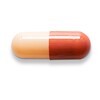
The stomach medication that became the biggest blockbuster of the 1990s
The omeprazole molecule was synthesised as early as 1979, but it took many years before the then Astra had an approved pharmaceutical. Once this happened, a tablet was available that was soon to help millions of people worldwide and break all sales records.
-

The most important Swedish medical innovations: Our ranking
Life Science Sweden turns 20 years old – and celebrates by producing a top list of the 20 most important contemporary Swedish innovations in the field of medicine.
-

“We are Europe’s hotspot in life science”
The Medicon Valley Alliance has worked for competence development in life science in Denmark and Sweden for a quarter of a century. Anette Steenberg, CEO, sees the anniversary as a recognition of MVA’s explosive power.
-
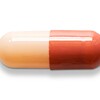
Magmedicinen som blev 90-talets största blockbuster
Redan 1979 syntetiserades omeprazolmolekylen. Men det kom att dröja många år innan dåvarande Astra hade ett godkänt läkemedel. När det väl skedde fanns en tablett som kom att hjälpa miljontals människor i världen – och slå alla försäljningsrekord.
-

Här är hela listan – De viktigaste svenska medicininnovationerna
Högst upp på Life Science Swedens rankning över moderna svenska innovationer inom medicinområdet finns Losec från dåvarande Astra.
-

Medtech-bolag ställer om – patienter som vilken konsument som helst
Patienter hanterar sin hälsa på samma sätt som de bokar resor eller nätshoppar, enligt en ny rapport. Nu lägger flera medtech-bolag om sin strategi.
-

Topplista innovationer: Ögonbehandling blev fjäder i hatten för Pharmacia
Från komplicerad och ibland riskabel operation till rutinåtgärd. Pharmacias injektionsvätska Healon blev omvälvande för ögonkirurgin.
-

He is zooming in on topical preparations
According to Zelmic CEO David Sagna, topical products in drug development is a growing market, and to keep pace with the development, the company is awaiting approval for its new GMP facility.
-

Första studien om apkoppor hos kvinnor visar delvis andra smittvägar
Bland kvinnor som fått apkoppor är det vanligare att de smittats på andra sätt än via sex än vad det är bland män. Det visar den första studien om apkoppor bland kvinnor, som presenteras av bland annat forskare i Göteborg.
-

Vårt jobb är att ta höjd för det osannolika
"Rymdfärder och läkemedelsutveckling har många likheter. De är hårt reglerade verksamheter där minsta misstag kan få ödesdigra konsekvenser", skriver Anna Törner i en krönika.
-
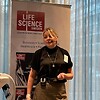
Swedish breakthrough in Alzheimer’s: “We can finally present great data”
Treatments for Alzheimer’s disease are currently among the hottest topics in drug development. Two Swedish research companies with high ambitions and successes in the field participated in Bioscience 2022 conference at Life City in Hagastaden, Stockholm.
-

Neanderthal genes and Nobel Prize in a popular lecture at Bioscience
An inherited gene variant from our ”evolutionary cousins” – the extinct Neanderthals – may affect how our bodies break down certain drugs. “It’s only a matter of time before we actively start screening for it,” said KI researcher Hugo Zeberg when describing the study at Bioscience 2022.